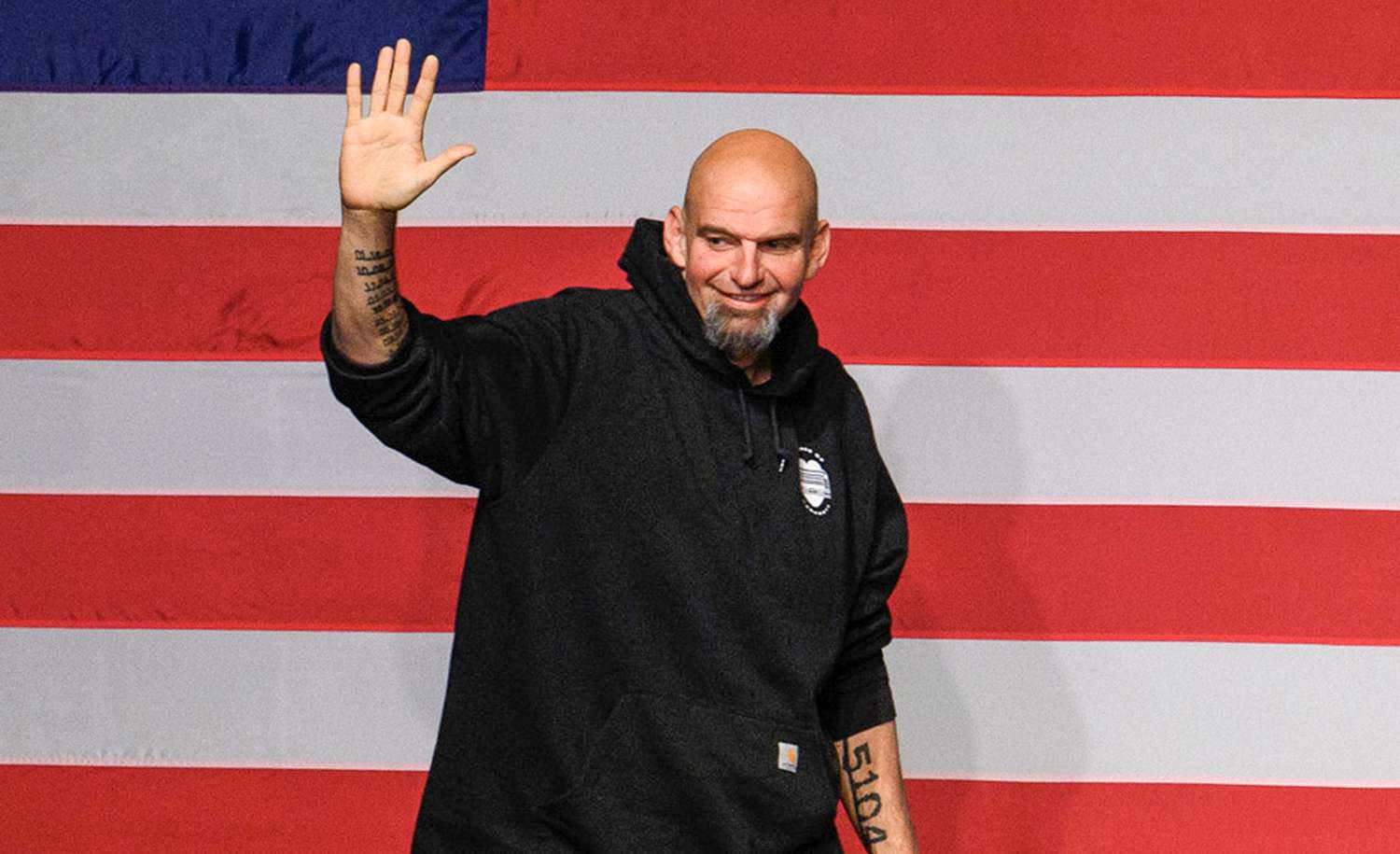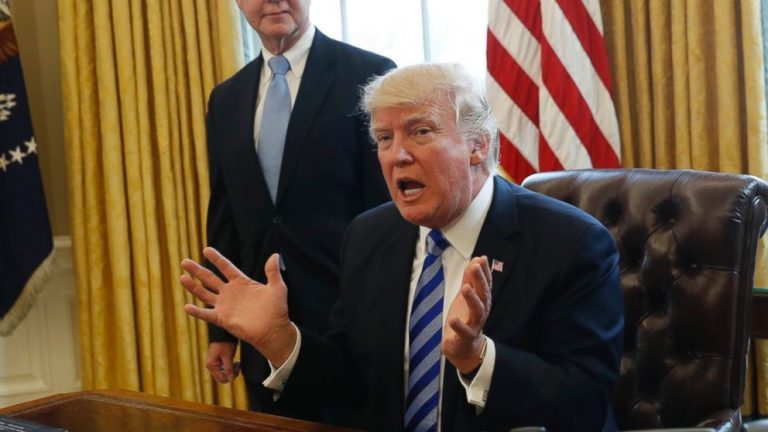Sen. John Fetterman has become one of the most unexpectedly disruptive figures in the Democratic Party. While the public image of the Pennsylvania Democrat was once dominated by questions surrounding his health and recovery following a near-fatal stroke, the version of Fetterman now stepping into the national spotlight is blunt, unfiltered, and relentlessly unwilling to play along with the ideological theatrics that dominate his party.
He’s no Republican. But he’s also no silent foot soldier in the Democratic ranks. And that is rapidly becoming a problem for the people who expect total loyalty from their own.
A Democrat Who Refuses to Follow the Script
Fetterman has showcased a streak of independence that has alarmed progressive activists and confused the Senate Democratic leadership. While most of his party dug in during the extended government shutdown, repeating talking points that even sympathetic analysts struggled to justify, Fetterman voted multiple times with Republicans to end the standoff.
He didn’t hide his reasoning. He didn’t dress it up in party-line rhetoric. He simply acknowledged the obvious: Democrats had no strategy, no leverage, and no clue what their endgame was.
That candor — increasingly rare in Washington — didn’t sit well with Senate Majority Leader Chuck Schumer, who attempted to keep Democrats unified even as voter frustration mounted. Fetterman, however, has never appeared especially concerned with whether Schumer approves of anything he does.
Like it or not, he has become the lone Democrat willing to say publicly what many of his colleagues whisper privately.
Rejecting the “Trump-as-Dictator” Narrative
While most Democrats and their allies in corporate media continue insisting the country is teetering on the edge of fascism, Fetterman has refused to parrot the panic-driven script.
This became clear during a recent interview with longtime television fixture Katie Couric — who attempted, repeatedly, to push him into calling former President Donald Trump a dictator, fascist, Nazi, or some variation thereof. It did not go as she planned.
Couric opened the door. Fetterman didn’t walk through it.
FETTERMAN: “I think at this point right now, we are not in an autocracy. We’re in a democracy.”
Not satisfied, Couric pressed again.
COURIC: “Would you concede that some of the things he is doing are anti-democratic, and also potentially even unconstitutional?”
Fetterman stayed unmoved:
FETTERMAN: “We happen to have a different view of these things. I don’t call people fascists or Nazis or compare people to Hitler.”
It was a remarkable break from the standard Democratic tactic of framing Trump as an unrestrained dictator—especially considering the reality: Trump, like every president, is limited at every turn by lawsuits, injunctions, courts, judges, and the bureaucracy. The imagery of autocracy has become a political crutch for Democratic messaging—and Fetterman simply refuses to participate.
The exchange immediately went viral, not because of Fetterman’s politics, but because of something far more unusual: he didn’t take the media’s bait.
Media Outrage, Social Media Backlash — but Fetterman Shrugs
Couric’s line of questioning wasn’t subtle. It was a textbook example of a media personality fishing for the headline she wanted. When Fetterman refused to deliver it, the political press responded with confusion, handwringing, and — in some corners — outright irritation.
Progressive pundits accused him of giving oxygen to “authoritarian normalization.” Others claimed his comments represented “dangerous downplaying.” A few even muttered about “platforming fascism,” though Fetterman’s only crime appeared to be honesty.
Conservatives, on the other hand, largely applauded his refusal to engage in exaggerated rhetoric.
But Fetterman himself didn’t seem to care about either reaction. His posture remains the same: he’ll say what he wants, when he wants, party pressure be damned.
The Irony: Fetterman Shows More Restraint Than His Colleagues Accuse Others Of Lacking
Fetterman’s comments highlight a contradiction that has become increasingly difficult for the modern Democratic Party to paper over. Many of its loudest voices accuse Republicans — particularly Trump supporters — of extremism, radicalization, and moral collapse. Yet those same voices now casually refer to Trump as:
-
Hitler
-
A fascist
-
A dictator
-
A Nazi
-
A threat to all life on Earth
And they do so while claiming the moral high ground.
Fetterman refuses to participate in what he considers political melodrama. He may have sharp policy disagreements with Trump, but he’s not willing to pretend the United States is collapsing into a totalitarian nightmare.
This puts him sharply at odds with the party’s activist wing, which thrives on fear-driven messaging.
The 2022 Health Crisis That Had Democrats Panicking Now Looks Like a Footnote
When Fetterman won his Senate seat in 2022, he did so under a cloud of uncertainty. His major stroke had left voters, reporters, and even some supporters deeply uneasy about his ability to serve. Many argued that his cognitive challenges made him unfit for office.
Yet today, the loudest criticism of him isn’t about his health — it’s about his unwillingness to toe the party line.
Some Democrats now see him as unpredictable. Others see him as a liability. A few quietly acknowledge he may be one of the only members of their caucus still capable of reading the broader political landscape instead of the curated fantasy pushed by progressive activists.
Why Fetterman’s Independence Could Make Him a Target in 2028
If Fetterman continues to break ranks on high-profile issues — especially anything involving Trump — he may find himself facing a serious primary challenge in 2028.
The Democratic Party has made clear in recent years that ideological uniformity is valued above everything else. Deviate from the script and the political machine will eventually come for you.
Fetterman is deviating in spectacular fashion.
-
He won’t call Republicans Nazis
-
He won’t call Trump a dictator
-
He voted to end the shutdown
-
He publicly undercut his party’s messaging
-
He pushes back on media narratives
-
He refuses to join the progressive outrage chorus
Those positions may play well with moderates and independents—but they are political nuclear waste to the activist left.
If a far-left challenger with backing from the AOC–Bernie pipeline decides to run against him, Fetterman could find himself fighting not just for reelection, but for control over his own political identity.
A Democrat Many Republicans Would Never Vote For — But Many Now Respect
None of this is to say conservatives agree with Fetterman’s policy positions. Most don’t — his platform is still overwhelmingly progressive.
But respect, in politics, is rare. And Fetterman has earned a measure of respect from voters and lawmakers who would never support him electorally. Because unlike most of Washington, he speaks plainly, disagrees openly, and refuses to demonize half the country to score cheap applause.
If that makes him an outlier in his own party, he doesn’t seem bothered.

James Jenkins is a celebrated Pulitzer Prize-winning author whose work has reshaped the way readers think about social justice and human rights in America. Raised in Atlanta, Georgia, James grew up in a community that instilled in him both resilience and a strong sense of responsibility toward others. After studying political science and creative writing at Howard University, he worked as a journalist covering civil rights issues before dedicating himself fully to fiction. His novels are known for their sharp, empathetic portraits of marginalized communities and for weaving personal stories with broader political realities. Jenkins’s breakout novel, Shadows of Freedom, won national acclaim for its unflinching look at systemic inequality, while his more recent works explore themes of identity, resilience, and the fight for dignity in the face of oppression. Beyond his novels, James is an active public speaker, lecturing at universities and participating in nonprofit initiatives that support literacy and community empowerment. He believes that storytelling is a way to preserve history and inspire change. When not writing, James enjoys jazz music, mentoring young writers, and traveling with his family to explore cultures and stories around the world.









